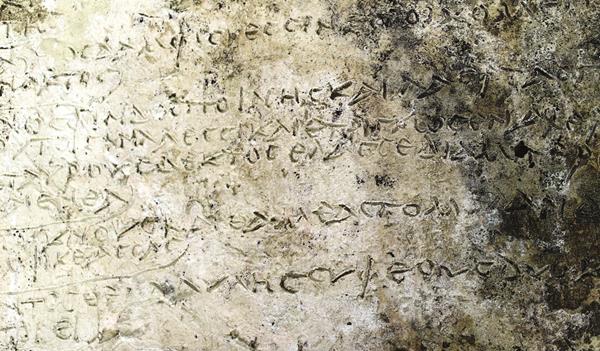Strata: Fragment of Homer’s Odyssey Unearthed at Olympia

Archaeologists working at the Greek site of Olympia, home of the ancient Olympic Games, discovered a third-century C.E. clay tablet containing 13 lines of Homer’s epic poem The Odyssey. The discovery was made near the sanctuary of Zeus by the archaeological project The Multidimensional Site of Olympia, led by Dr. Erofili-Iris Kollia, Director of the Ephorate of Antiquities of Ilia.
The tablet contains the portion of Book 14 of The Odyssey in which the cunning Greek warrior Odysseus, having spent 10 years journeying home to Ithaca after the Trojan War (with several obstacles and detours along the way), has come to the hut of his slave Eumaeus, a swineherd.
The 12,000-line Odyssey and the preceding epic The Iliad, which recounts the final year of the 10-year war between the Greeks and Trojans, are regarded as the earliest-surviving and most important works of Greek literature. These epic poems are attributed to a bard named Homer who may have lived in the eighth century B.C.E., although some scholars have questioned whether Homer was one person or a name ascribed to a collection of oral poems.
“This extraordinary and unique discovery raises so many new questions,” said Diane H. Cline, Associate Professor in the History Department at The George Washington University. “Is this a gift to the gods, and if so, who would choose to dedicate a plaque with 13 lines of The Odyssey to Zeus? Why would someone inscribe these particular lines, which aren’t really that pithy or significant?”
Already a library member? Log in here.
Institution user? Log in with your IP address.

